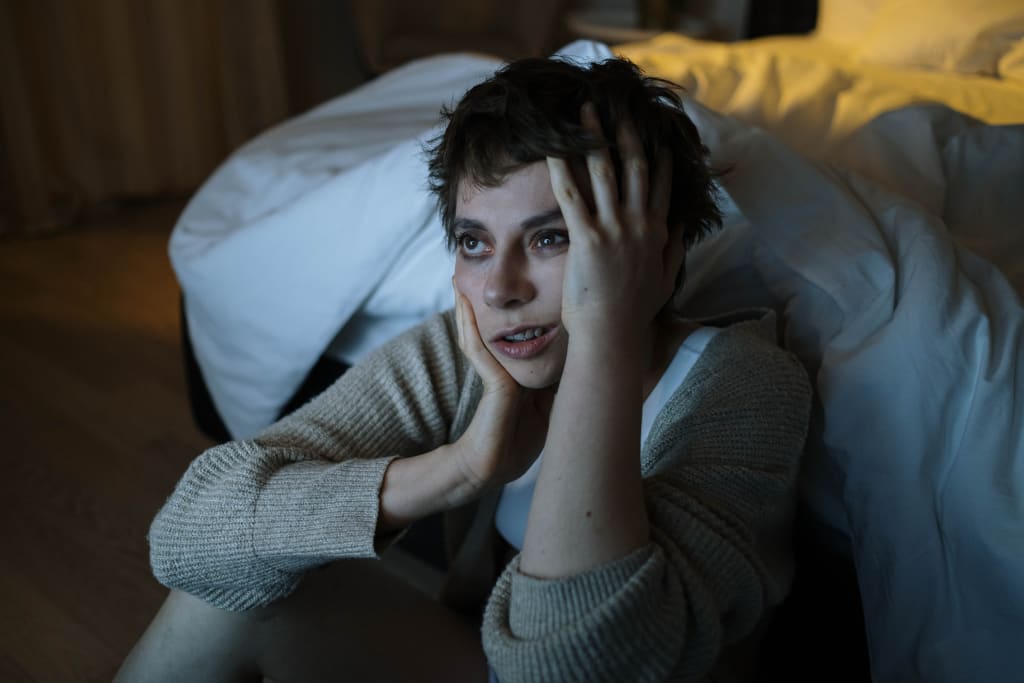"Suffering from Sleeplessness and Anxiety? These Herbs Might Be the Answer"
Find Out Which Herbs Are the Most Effective for Combating Sleeplessness and Anxiety

I. Introduction
A. Explanation of insomnia and anxiety
B. Brief overview of the article
II. Causes of Insomnia and Anxiety
A. Explanation of how insomnia and anxiety are related
B. Factors that contribute to insomnia and anxiety
III. Common Medications Used for Insomnia and Anxiety
A. Overview of prescription and over-the-counter drugs
B. Explanation of their effectiveness
C. Explanation of potential side effects
IV. Alternative Herbs for Insomnia and Anxiety
A. Overview of popular herbs for insomnia and anxiety
B. Explanation of their effectiveness
C. Explanation of potential side effects
V. Best Herbs for Insomnia and Anxiety
A. Valerian Root
B. Passionflower
C. Chamomile
D. Lemon Balm
E. Ashwagandha
VI. How to Use Herbs for Insomnia and Anxiety
A. Explanation of different forms of herbs (teas, supplements, tinctures, etc.)
B. Proper dosages
C. Precautions and potential interactions
VII. Lifestyle Changes to Improve Insomnia and Anxiety
A. Regular exercise
B. Relaxation techniques
C. Healthy sleep habits
D. Avoidance of caffeine and alcohol
VIII. Conclusion
A. Summary of the article
B. Final recommendations for readers

Insomnia and anxiety are two of the most common health issues affecting people around the world. Insomnia is a sleep disorder characterized by difficulty falling or staying asleep, while anxiety is a feeling of unease, such as worry or fear, that can range from mild to severe. These two issues often go hand in hand, with anxiety causing or exacerbating insomnia, and lack of sleep making anxiety worse. While prescription medications can be effective for treating both insomnia and anxiety, many people prefer to explore natural remedies, including herbs. Herbs have been used for centuries to help promote relaxation and improve sleep, and research has shown that some herbs may be effective in reducing symptoms of anxiety and insomnia. In this article, we'll take a closer look at some of the best herbs for insomnia and anxiety, and how they can be used to promote better sleep and ease anxiety symptoms.
- Valerian Root
Valerian root is one of the most commonly used herbs for promoting sleep and easing anxiety symptoms. It has been shown to have a sedative effect on the brain, which can help promote relaxation and reduce anxiety. Valerian root is often taken as a supplement or in tea form, and it's important to follow proper dosages to avoid potential side effects, such as headaches and upset stomach.
- Passionflower
Passionflower is another popular herb for promoting relaxation and easing anxiety symptoms. It has been shown to have a calming effect on the brain, which can help reduce feelings of anxiety and promote better sleep. Passionflower is often taken in supplement form or as a tea, and it's important to follow proper dosages to avoid potential side effects, such as dizziness and confusion.
- Chamomile
Chamomile is a popular herb that has been used for centuries to promote relaxation and ease anxiety symptoms. It has been shown to have a mild sedative effect on the brain, which can help promote better sleep and reduce feelings of anxiety. Chamomile is often taken in tea form, and it's generally considered safe for most people.
- Lemon Balm
Lemon balm is another herb that has been shown to have a calming effect on the brain, which can help reduce feelings of anxiety and promote better sleep. It has also been shown to have a positive effect on mood, which can help ease symptoms of depression that often accompany anxiety and insomnia. Lemon balm is often taken as a supplement or in tea form, and it's important to follow proper dosages to avoid potential side effects, such as headache and nausea.
- Ashwagandha
Ashwagandha is an herb that has been used in Ayurvedic medicine for centuries to help promote relaxation and reduce anxiety symptoms. It has been shown to have a calming effect on the brain, which can help reduce feelings of anxiety and promote better sleep. Ashwagandha is often taken as a supplement, and it's important to follow proper dosages to avoid potential side effects, such as upset stomach and diarrhea.
In addition to these herbs, there are several lifestyle changes that can help promote better sleep and ease anxiety symptoms. Regular exercise can help reduce feelings of anxiety and promote better sleep, as can relaxation techniques such as deep breathing and meditation. Developing healthy sleep habits, such as going to bed and waking up at the same time each day, can also help promote better sleep.
Avoiding caffeine and alcohol before bed is also important, as both can interfere with sleep and exacerbate feelings of anxiety. In addition, it's important to avoid using electronics before bed, as the blue light emitted by screens can disrupt the body's natural sleep-wake cycle.
In conclusion, while prescription medications can be effective for treating insomnia and anxiety, many people prefer to explore natural remedies, including herbs. Valerian root, passionflower, chamomile, lemon balm, and ashw.
"Say Goodbye to Sleepless Nights with These Powerful Natural Remedies - Try Them Today!"
FAQ (Frequently Asked Questions)
Q: Are herbs safe to use for insomnia and anxiety?
A: In general, herbs can be safe to use for insomnia and anxiety when taken in appropriate doses. However, it's important to keep in mind that herbs can interact with other medications and may not be appropriate for everyone. Always talk to your doctor or a qualified healthcare practitioner before taking any new herbs or supplements.
Q: How long does it take for herbs to work for insomnia and anxiety?
A: The amount of time it takes for herbs to work for insomnia and anxiety can vary depending on the herb and the individual. Some herbs, such as valerian root, may take several weeks of consistent use before you notice a difference in your symptoms. Others, such as chamomile and lemon balm, may have more immediate effects.
Q: Can I use herbs to replace my prescription medications for insomnia and anxiety?
A: It's important to talk to your doctor before stopping or changing any prescription medications for insomnia and anxiety. While herbs can be a helpful addition to a treatment plan, they may not be sufficient to replace prescription medications for some individuals.
Q: Can children and pregnant women use herbs for insomnia and anxiety?
A: Children and pregnant women should always consult with a qualified healthcare practitioner before using herbs for insomnia and anxiety. Some herbs may not be safe for use in these populations.
Q: Can I use multiple herbs at the same time for insomnia and anxiety?
A: It's generally safe to use multiple herbs at the same time for insomnia and anxiety, as long as you are following appropriate dosages and have talked to a qualified healthcare practitioner about potential interactions with any prescription medications you may be taking.
Q: Are there any side effects of using herbs for insomnia and anxiety?
A: Some herbs can have side effects, such as headache, nausea, and upset stomach. It's important to follow appropriate dosages and talk to a qualified healthcare practitioner if you experience any side effects while using herbs for insomnia and anxiety.
Q: Can herbs cure insomnia and anxiety?
A: While herbs can be helpful for managing symptoms of insomnia and anxiety, they are not a cure for these conditions. It's important to work with a qualified healthcare practitioner to develop a comprehensive treatment plan that addresses the underlying causes of insomnia and anxiety.
About the Creator
Consumer Chronicles
Consumer Chronicles: Your go-to source for honest and informative product reviews from real-life consumers. Get insights before you buy! #productreviews






Comments
There are no comments for this story
Be the first to respond and start the conversation.